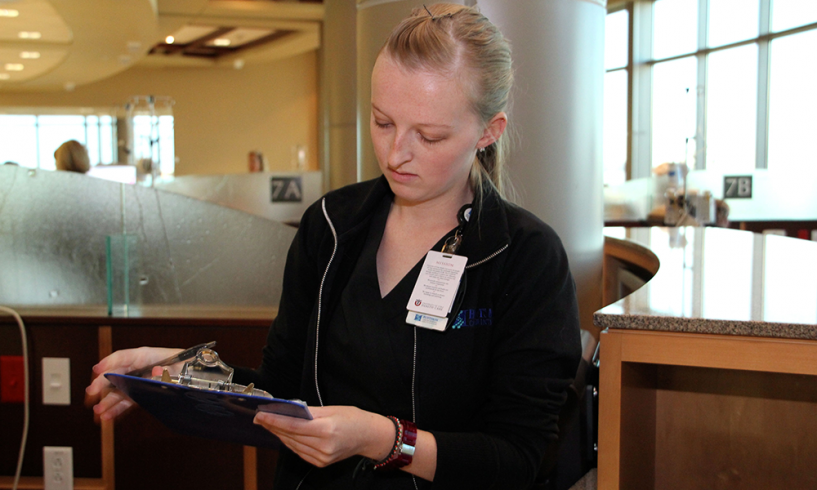Approximately 90% of patients with cancer experience anemia because of disease process, treatment side effects, or coexisting conditions. Anemia is defined as a hemoglobin (Hgb) less than 10.0 g/100 ml of blood (10.0 g/dL), but for stable hospitalized adults without cardiac disease, guidelines recommend transfusions for a target Hgb of 7.0–8.0 g/dL, using the smallest effective dose of packed red blood cells needed to alleviate symptoms. These guidelines emphasize clinical assessment in addition to target hemoglobin levels when considering transfusions.
Acute bleeding accounts for a small proportion of transfusions in oncology. Most are given to relieve symptoms of fatigue and dyspnea. Though a causal relationship is often assumed between anemia and these symptoms, their etiology is multifactorial. Approximately one-third of patients may not have clinical benefit, with average duration of response 14 days or less, especially in patients with transfusion dependency (considered two or more units per month over eight weeks). Although acute transfusion reactions remain rare, other adverse effects include alloimmunization (which increases the risk of transfusion reactions,) infection, transfusion related acute lung injury, transfusion associated circulatory overload, and iron overload.
The decision to use transfusions at end of life is complex, and determining when to stop is difficult. Considerations include potential harm and increased mortality in frail patients as well as a lack of benefit in those clearly dying from advanced cancer.
Although the issues involved are challenging, opportunities do exist. Integrating symptom management with cancer treatment, behavioral approaches, social support, nutrition, and exercise is more effective than merely providing transfusions. Psychoeducational approaches, along with early integration of palliative care, help patients and families understand the waning benefit of transfusions over time, which helps to mitigate distress when transfusions in advanced cancers are no longer beneficial. ONS’s Putting Evidence Into Practice resources provide evidence-based interventions that may help.
Kathleen N. Clifford, RN, MSN, FNP-BC, AOCNP®, ACHPN, is an adult hematology/oncology nurse practitioner for St. Luke’s Mountain States Tumor Institute in Boise, ID.






